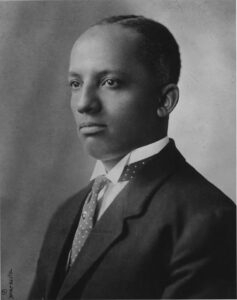 In 1976, during our nation’s bicentennial year celebration, President Gerald R. Ford challenged Americans to “seize the opportunity to honor the too-often neglected accomplishments of Black Americans in every endeavor throughout our history.” Since then, the United States has deemed the month of February as a time for all citizens to intentionally lift up and celebrate the cultural heritage of African Americans, and to acknowledge and honor their often-overlooked contributions and sacrifices throughout history, which have been instrumental in shaping America.
In 1976, during our nation’s bicentennial year celebration, President Gerald R. Ford challenged Americans to “seize the opportunity to honor the too-often neglected accomplishments of Black Americans in every endeavor throughout our history.” Since then, the United States has deemed the month of February as a time for all citizens to intentionally lift up and celebrate the cultural heritage of African Americans, and to acknowledge and honor their often-overlooked contributions and sacrifices throughout history, which have been instrumental in shaping America.
President Ford’s official designation of February as Black History Month was more than fifty years in the making. It originated in 1926 with Carter G. Woodson, the “father of Black history” who envisioned a designated time each year to elevate and encourage the teaching of Black history in America’s public schools. According to Albert Broussard, a professor of Afro-American History at Texas A&M University, “Woodson’s goal from the very beginning was to make the celebration of Black history in the field of history a ‘serious area of study.’”
To this end, Woodson, along with historians from The Association for the Study of Negro Life and History (which later became Association for the Study of African American Life and History – ASALH) selected the second week of February as Negro History Week. According the ASALH, Woodson chose this particular week because both Abraham Lincoln, who advocated for the emancipation of slaves, and Frederick Douglass, a former slave who was a prominent leader in the abolitionist movement, were both born in the second week of February.
By the late 1960s, as the importance of recognizing Black history came to the forefront of our national discourse, Negro History Week evolved into Black History Month. Although Black history should be taught, learned, and celebrated year-round, February reminds us to be intentional in our effort to learn and discover the history that we may not have learned otherwise.
This year the Mission Committee and the Spiritual Growth and Development Committee have chosen to embrace this call to intentional learning by offering a series of “mini” history articles that feature a contributor to America’s Black history. More specifically, in keeping with the 2022 national theme of Black Health and Wellness (which seems particularly apropos as the U.S. continues to fight the coronavirus pandemic), we will introduce Tab to the stories of four Black trailblazers in healthcare history whose faith contributed to their life’s work. These articles, researched and written by Tab members, will be released each week.
For more about the origins of Black History month, check out these sources:
https://www.npr.org/2022/02/01/1075623826/why-is-february-black-history-month
https://asalh.org/about-us/about-black-history-month/
“Whatever is true, whatever is honorable, whatever is just, whatever is pure, whatever is pleasing, whatever is commendable, if there is any excellence and if there is anything worthy of praise, think about these things.” Philippians 4:8
